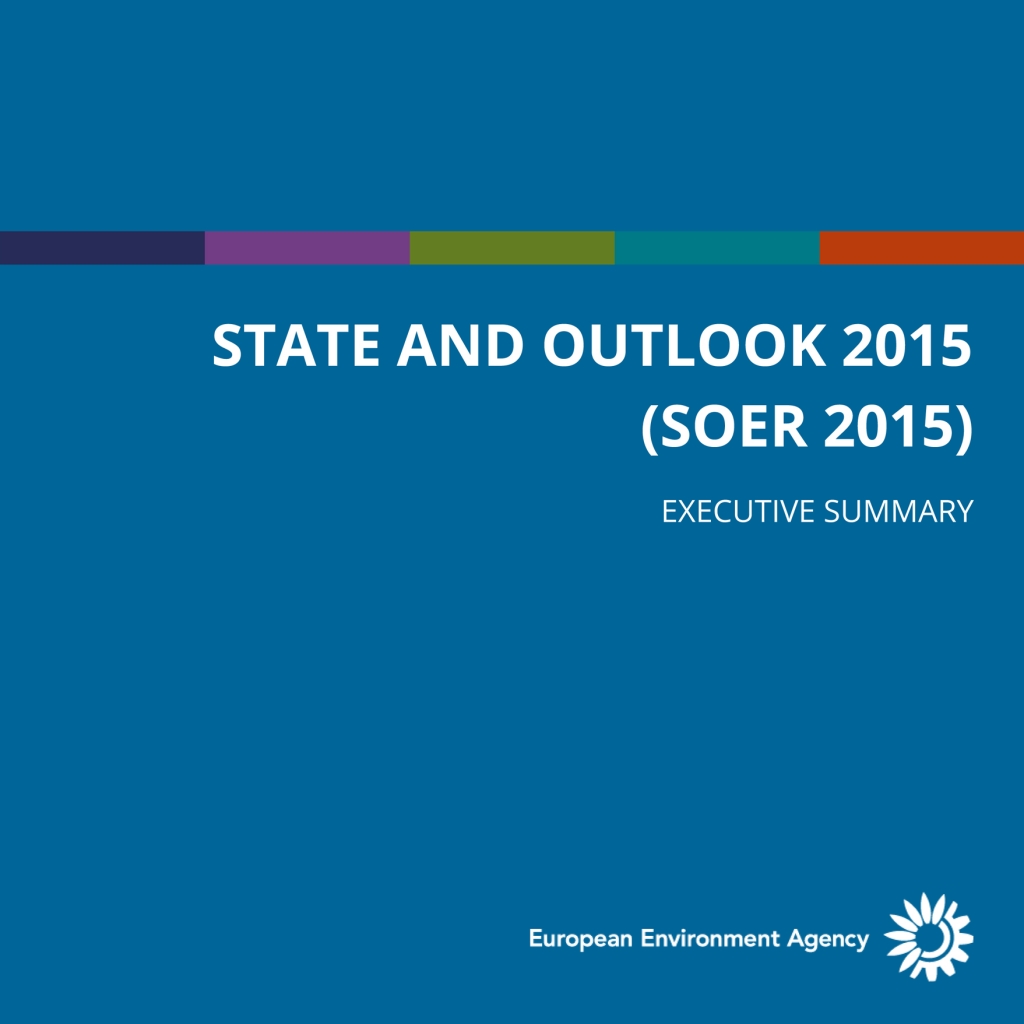SOER 2015 – Executive Summary
FEBRUARY 2015
a cura di European Environment Agency
In 2015, Europe stands roughly halfway between the initiation of EU environmental policy in the early 1970s and the EU’s 2050 vision of ‘living well within the limits of the planet’ . Underlying this vision is a recognition that Europe’s economic prosperity and well-being is intrinsically linked to its natural environment — from fertile soils to clean air and water.
Looking back on the last 40 years, implementation of environment and climate policies has delivered substantial benefits for the functioning of Europe’s ecosystems and for the health and living standards of its citizens. In many parts of Europe, the local environment is arguably in as good a state today as it has been since the start of industrialisation. Reduced pollution, nature protection and better waste management have all contributed.
Environmental policies are also creating economic opportunities and thereby contributing to the Europe 2020 Strategy, aimed at making the EU into a smart, sustainable and inclusive economy by 2020. For example, the environment industry sector, which produces goods and services that reduce environmental degradation and maintain natural resources, grew by more than 50% in size between 2000 and 2011. It has been one of the few economic sectors to have flourished in terms of revenues, trade and jobs since the 2008 financial crisis.
Despite the environmental improvements of recent decades, the challenges that Europe faces today are considerable.
European natural capital is being degraded by socio-economic activities such as agriculture, fisheries, transport, industry, tourism and urban sprawl. And global pressures on the environment have grown at an unprecedented rate since the 1990s, driven not least by economic and population growth, and changing consumption patterns.
At the same time, growing understanding of the characteristics of Europe’s environmental challenges and their interdependence with economic and social systems in a globalised world has brought with it increasing recognition that existing knowledge and governance approaches are inadequate to deal with them.
It is against this backdrop that the SOER 2015 has been written. Based on data and information from numerous published sources, this synthesis report evaluates the European environment’s state, trends and prospects in a global context, and analyses opportunities to recalibrate policies and knowledge in line with the 2050 vision.
Italiano
